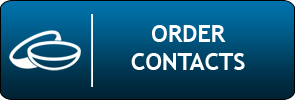CONTACTS OR GLASSES, WHAT’S YOUR BEST FIT?
 Contacts or glasses? This is a question that often presents itself after an eye exam, especially the first eye exam that determines that you need help to see clearly. While there is no scientific answer in most cases as to which option will suite you best, there are some personal factors that may cause you to lean one way or the other.
Contacts or glasses? This is a question that often presents itself after an eye exam, especially the first eye exam that determines that you need help to see clearly. While there is no scientific answer in most cases as to which option will suite you best, there are some personal factors that may cause you to lean one way or the other.
Whether you choose to wear eyeglasses or contacts mostly depends on your personality and personal preferences. Factors such as lifestyle, comfort, budget, convenience and aesthetics should play a role in your choice. When making the choice, remember that one is not necessarily better than the other, each has its own list of pros and cons.
First off we want to stress that glasses are a necessity whether you choose to have contacts or just glasses. While contact users wear their contacts majority of the time, your eye will often become tired or dry. This will cause discomfort and require you to remove your contacts and wear the glasses.
Contact lenses have many advantages over glasses. Contacts sit directly on your eye, so your vision, especially your peripheral vision, is unobstructed. You can also participate in sports and activities without the fear of your glasses falling off or getting in the way.
Listed below are some advantages and disadvantages of contact lenses.
Advantages
- Contacts don’t get in the way when playing sports.
- Contacts typically aren’t affected by weather conditions and won’t fog up in cold weather.
- Contacts won’t clash with what you are wearing.
Disadvantages
- Some people have difficulty applying contact lenses to their eye.
- Some types of contacts require lens care and cleaning each day.
- Contacts reduce the amount of oxygen reaching the eye and can increase dry eye symptoms.
That being said, eyeglasses also offer many benefits over contact lenses. They require little cleaning and less maintenance. You also do not need to touch your eye to wear glasses which reduces the chance of you developing an eye infection. Glasses are also cheaper than contact lenses in the long run, as they do not need to be replaced nearly as often as contacts.
Listed below are some advantages and disadvantages of glasses.
Advantages
- Reduces the need to touch your eye, reducing the chances of infection or eye irritation.
- Eyeglasses are cheaper over the long run and don’t need replaced unless you break them.
- Glasses provide some protection from wind, dust and debris.
Disadvantages
- Eyeglasses sit about a half inch from your eye, which distorts peripheral vision.
- Frames can have constant pressure on your nose and head. This can lead to headaches.
- Some people do mot like the way that glasses look and feel that it takes away from facial features.
Due to the advances in contact lenses, most people have the ability to wear them successfully and prefer them over glasses as a primary form of vision correction. The decision as whether to wear glasses or contacts, and when to wear them is usually a matter of personal preference. It is important to remember that if you do choose contacts, it is important to have an up to date pair of glasses to wear in case you need to stop wearing contact lenses due to irritation or infection.
About the author: John D. Bissell, owner of Bissell Eye Care and Tri-State Low Vision Services, offers comprehensive eye examinations for the entire family, ocular disease detection and treatment, eye glasses, sun glasses, active wear, contact lenses, and low vision examinations for those with significant vision loss. He has undergone specialized training for treatment of low vision by the International Academy of Low Vision Specialists utilizing customized telescopic eyeglasses, prisms and telescopic implants for patients who qualify. The practice accepts most types of vision and health insurance plans.


